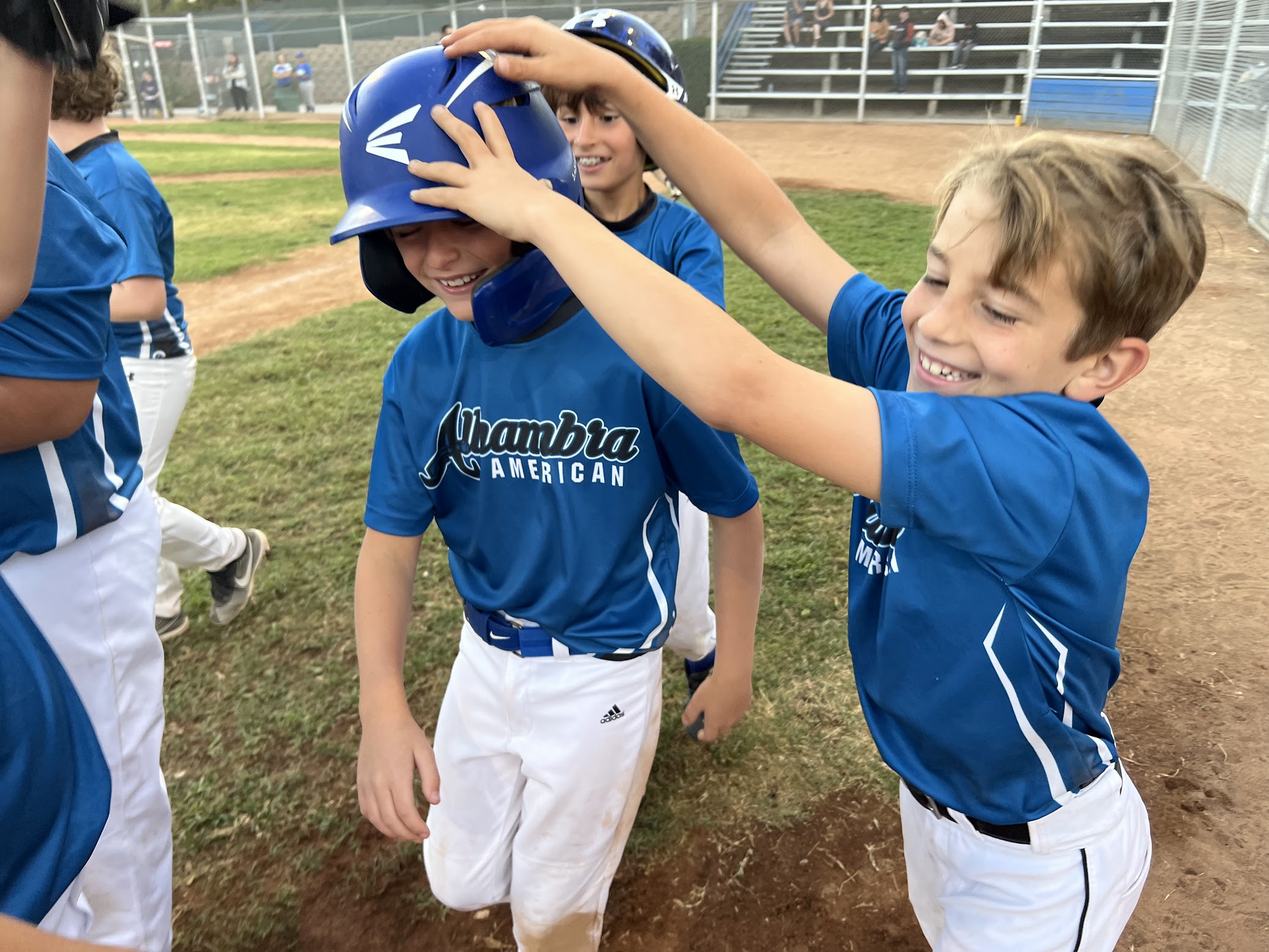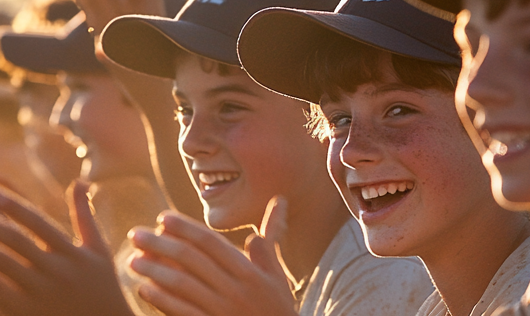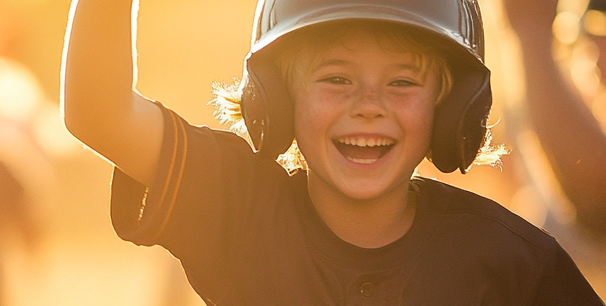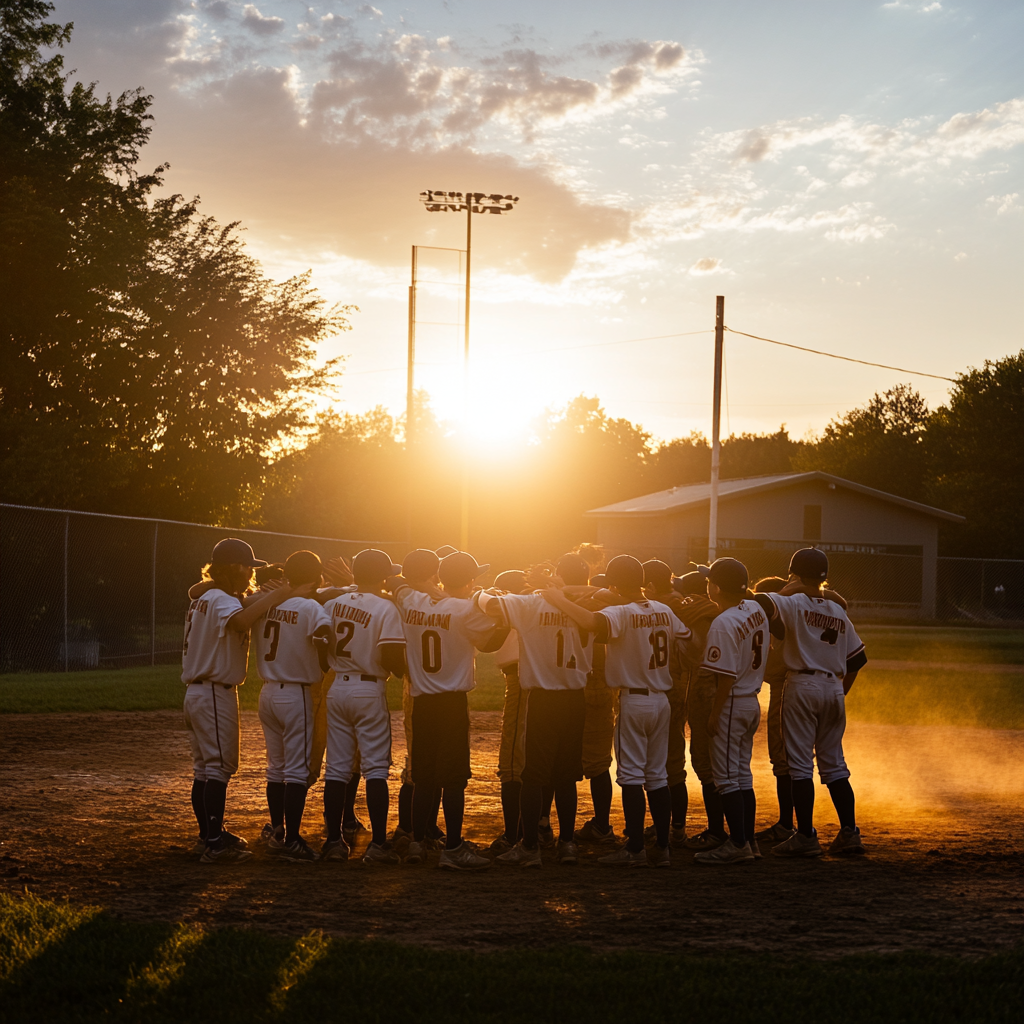Celebrating Every Game: Creating a Culture of Positivity in Youth Baseball

There’s a scoreboard, sure. There are winners and losers, hits and errors, strikeouts and walks. But if the only measure of success is the final score, you’re missing the best part of youth baseball. The real game—the one that matters—is found in the high-fives, the small victories, and the traditions that make every player feel like they belong.
Every season, we set out to teach kids the game of baseball, but the best lessons go beyond batting stances and defensive positioning. The best lessons happen in the dugout, in the small moments of encouragement, in the traditions that make playing feel like belonging. A season isn’t just a string of wins and losses—it’s a collection of memories, habits, and little victories that stack up to form something bigger than baseball.

Finding the Wins Everywhere
Winning a game is great. But how do you keep the energy high and the kids engaged when the scoreboard doesn’t tilt in your favor? You celebrate everything. Every game, every practice, every moment has a win if you’re looking for it.
The High-Five Rule
We high-five every kid after a strikeout. Not sarcastically, not in a "better luck next time" way, but as a real moment of connection. Because if you struck out, it means you swung. And swinging means you were up there trying, learning, and getting better. No one improves by standing still. When a kid walks back to the dugout after a strikeout, they should be greeted with the same energy they would get after a double. It reinforces one of the biggest lessons of baseball—you only fail when you stop swinging.
The Bases Belong to Everyone
Win or lose, every game ends with the team running the bases together. It’s not just a tradition—it’s a reminder that no matter what happened, the game was played, the effort was given, and we’re moving forward together. There’s something symbolic about touching every bag after the game is over, a full-circle moment that reminds players: today was a step forward.
The Dugout Photo Tradition
After every game, we take a team picture at home plate. Maybe it's goofy, maybe it's serious, but it happens. Because the season isn’t about one game—it’s about all of them, and we’ll want to look back on these moments someday.
And it’s not just about the players on the roster today. The kids who’ve been with us for years, the ones we’ve been lucky to draft, and even the ones who have moved on to other teams—they know we’re always rooting for them. They know that no matter where they play, they are always welcome to run the bases with us, to celebrate the game, to be part of the team in spirit. Win or lose, strikeout or home run, they’re still part of the family.

Building a Template for Positivity
A team culture isn’t built by accident. It’s built through intentional moments that kids can count on, no matter what happens on the field. And here’s the secret—culture is what happens when no one is keeping score. It’s what happens in the dugout, in between innings, in the car ride home.
1. Start with a Team Mindset
From day one, set the expectation that effort and attitude are celebrated as much as hits and runs. Let players know they’re playing for each other, and every game is a chance to support teammates. A team mindset means that no one carries a bad game alone, and no one celebrates a win alone.
One of my favorite moments in any season is watching kids celebrate a teammate’s success like it’s their own. When the entire dugout explodes because someone who has struggled at the plate all season finally gets a hit—that’s when you know the culture is right. That’s when you know the team sees each other not as individual players but as a collective effort.
2. Create Traditions That Stick
Simple, repeatable traditions become the heartbeat of a team. Whether it’s a pre-game chant, a post-game lap, or handing out a “Hustle of the Game” high-five, these small things build a bigger culture.
A great tradition a friend told me about is the "glove tap"—before every game, each player touches gloves with their teammates as they run onto the field. It’s a reminder that no one plays alone, and that every game starts with a moment of connection.

3. Encourage Personal Wins
Make every player feel seen. Maybe today’s win is a player overcoming their fear of sliding. Maybe it’s a kid who finally called for a fly ball. Find these moments, call them out, and celebrate them.
I was talking to my friend about his childhood experiences, and while he didn’t have the best memories of baseball itself, he shared something that stuck with me:
“The teachers and coaches who meant the most to me were the ones who encouraged me, gave me affirmation, and helped me improve. I didn’t get a lot of that at home, so their words made a huge impact. Telling a kid they’re making progress and being intentional about it is so important.”
That right there is why we make a point to celebrate the little things. Baseball is just a game, but the way we coach, the way we speak to kids, the way we acknowledge their effort—that sticks with them. A kid might not remember their batting average, but they’ll remember if they had a coach who believed in them.
Baseball is built on tiny victories that don’t always show up on the stat sheet. A kid who finally squares up a pitch and drives it into the outfield might not get credit if it’s caught—but they still deserve to know they’re making progress. A kid who lays down a perfect sacrifice bunt won’t have it reflected in their batting average, but the team should know it mattered.
4. The Power of a Well-Timed Compliment
I still remember my 8th-grade history teacher, who also happened to be the track coach. I was new at a new school, and somehow, he made me feel like I belonged. He worked directly with me, helped me believe I could do what was hard, and pushed me by running beside me. But what stuck with me the most—after more than 35 years—was something so simple.
"You look like a pro out there—really smooth and strong form. Keep it up!"
That one sentence made an impact. It wasn’t about winning races. It wasn’t about being the fastest. It was about being seen, about having someone recognize effort and skill and say, “I see what you’re doing, and it’s good.”
As coaches, we have those same opportunities every day. A well-timed compliment can be something a kid carries with them for decades. Whether it’s telling a player their swing is getting smoother, that they made the right read on a fly ball, or that their hustle on a routine grounder stood out—those words matter. The best part? It costs nothing, takes a second, and might just be the thing they remember forever.
5. Lead by Example
Kids follow what they see. If coaches and parents treat every game as a lesson and every player as valuable, that’s the culture that will grow.
Coaches, if you get excited about a player hustling down the line on a groundout, they’ll start to see that effort matters. If you make a big deal about an outfielder backing up a throw and preventing extra bases, kids will start to realize that defense is just as important as offense. If you let a bad call ruin your mood, they’ll learn that baseball is only fun when things go their way. Every moment is a teaching moment—even the ones where we don’t realize they’re watching.

The Tradition That Lasts
The truth is, most of these kids won’t remember their batting average in five years. They won’t remember the exact number of wins or losses. But they’ll remember how it felt to be on the team. They’ll remember the dugout cheers, the high-fives after strikeouts, the full-team base run after every game.
And maybe, just maybe, they’ll carry that same mindset into whatever they do next—finding wins in the little things, celebrating the effort, and making every moment count.
The best part of youth baseball isn’t the championship games or the trophies. It’s the moments in between. It’s the inside jokes in the dugout. It’s the time a kid hit a foul ball into their own dugout and everyone, including the coach, had to duck. It’s the first time a player makes a diving stop and the entire field erupts.
When we build a culture of celebration, we’re teaching kids that every game matters—not just the ones we win. We’re teaching them that effort is always worth cheering for. And we’re creating a team where, no matter what happens, they’ll always know they have people in their corner, ready to high-five them, ready to run the bases with them, ready to remind them that baseball is bigger than the scoreboard.

Back to Home